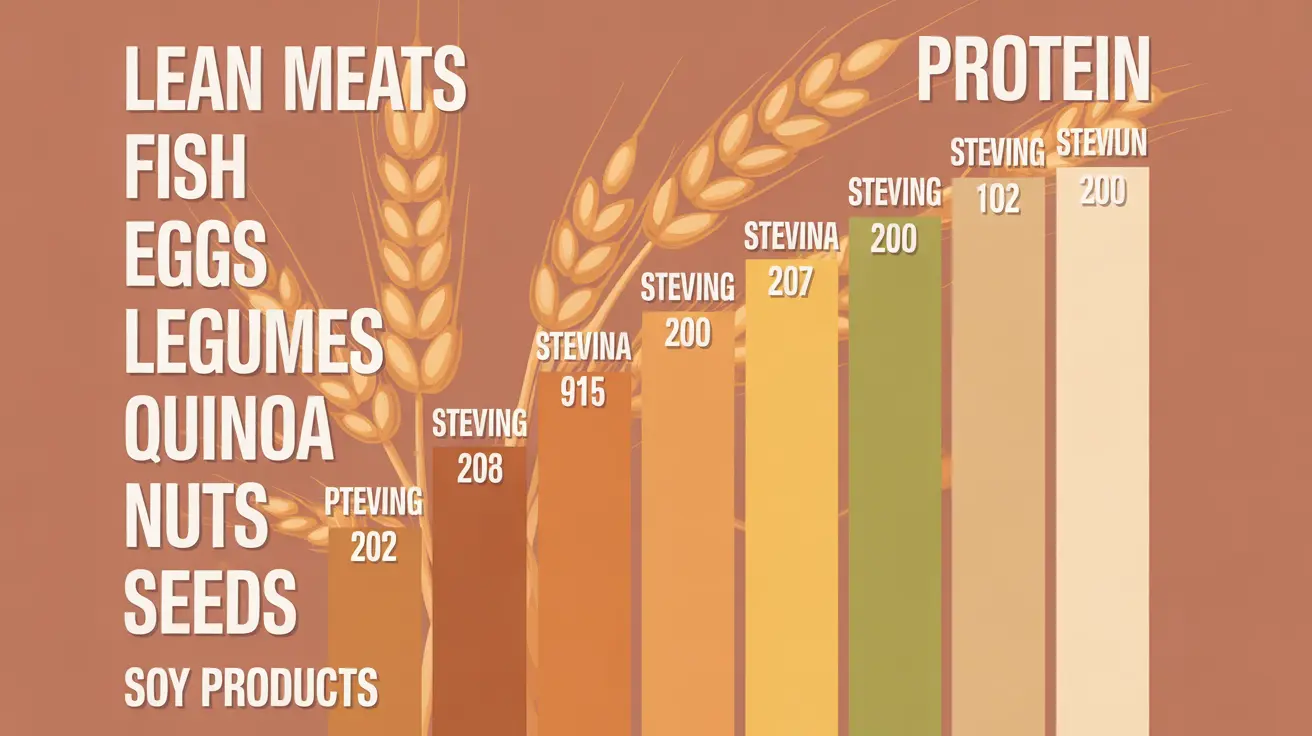Protein deficiency is a serious nutritional condition that occurs when your body doesn't get enough protein to maintain essential functions. While it's relatively rare in developed countries, certain populations remain at risk, and understanding the signs and implications of protein deficiency is crucial for maintaining optimal health.
This comprehensive guide explores the key aspects of protein deficiency, from recognizing early warning signs to understanding treatment options and prevention strategies. Whether you're concerned about your protein intake or wanting to learn more about this vital nutrient, this information will help you make informed decisions about your health.
Common Signs and Symptoms of Protein Deficiency
Protein deficiency can manifest through various physical and psychological symptoms. Recognizing these early warning signs is crucial for timely intervention:
- Muscle weakness and wasting
- Fatigue and low energy levels
- Delayed wound healing
- Brittle hair and nails
- Skin problems and slow healing
- Increased risk of bone fractures
- Mood changes and irritability
Physical Changes and Body Composition
When your body lacks adequate protein, it begins to break down muscle tissue to meet its protein needs. This can lead to notable changes in body composition and physical appearance:
- Reduced muscle mass
- Swelling or edema in extremities
- Thinning hair
- Pale or dull skin appearance
Risk Factors and Causes
Several factors can contribute to the development of protein deficiency:
Dietary Factors
- Strict vegetarian or vegan diet without proper planning
- Limited access to protein-rich foods
- Poor appetite or restricted eating
Medical Conditions
- Digestive disorders affecting protein absorption
- Chronic kidney disease
- Cancer and its treatments
- Eating disorders
Population Groups at Higher Risk
- Elderly individuals
- Pregnant women
- Athletes with inadequate nutrition
- People in developing countries
- Those with limited food access
Impact on Immune System and Overall Health
Protein deficiency can significantly compromise your immune system and overall health in several ways:
- Weakened immune response
- Increased susceptibility to infections
- Slower recovery from illness
- Impaired organ function
- Delayed growth in children
- Hormonal imbalances
Prevention and Dietary Solutions
Preventing protein deficiency involves maintaining a balanced diet rich in protein sources:
Animal-Based Protein Sources
- Lean meats
- Fish and seafood
- Eggs
- Dairy products
Plant-Based Protein Sources
- Legumes and beans
- Quinoa
- Nuts and seeds
- Soy products
- Whole grains
Diagnosis and Treatment
Healthcare providers typically diagnose protein deficiency through:
- Blood tests measuring protein levels
- Physical examination
- Medical history review
- Assessment of dietary habits
Treatment approaches usually include:
- Dietary modifications
- Protein supplementation when necessary
- Treatment of underlying medical conditions
- Regular monitoring and follow-up
Frequently Asked Questions
What are the common symptoms and signs of protein deficiency to watch for? Common signs include muscle weakness, fatigue, delayed wound healing, brittle hair and nails, and swelling in extremities. Mood changes and increased susceptibility to infections are also notable indicators.
What causes protein deficiency and who is most at risk for developing it? Protein deficiency can be caused by inadequate dietary intake, malabsorption disorders, and certain medical conditions. High-risk groups include elderly individuals, pregnant women, strict vegetarians without proper planning, and people with limited food access or eating disorders.
How can protein deficiency affect the immune system and overall health? Protein deficiency compromises immune function, making you more susceptible to infections and slower to recover from illness. It can also affect organ function, hormone production, and overall growth and development.
What foods are best to increase protein intake and prevent deficiency? The best protein sources include lean meats, fish, eggs, dairy products, legumes, quinoa, nuts, seeds, and soy products. A balanced diet incorporating both animal and plant-based proteins is ideal for meeting daily requirements.
How is protein deficiency diagnosed and what treatments are available? Diagnosis typically involves blood tests, physical examination, and dietary assessment. Treatment focuses on increasing protein intake through diet modification, possible supplementation, and addressing any underlying medical conditions.




